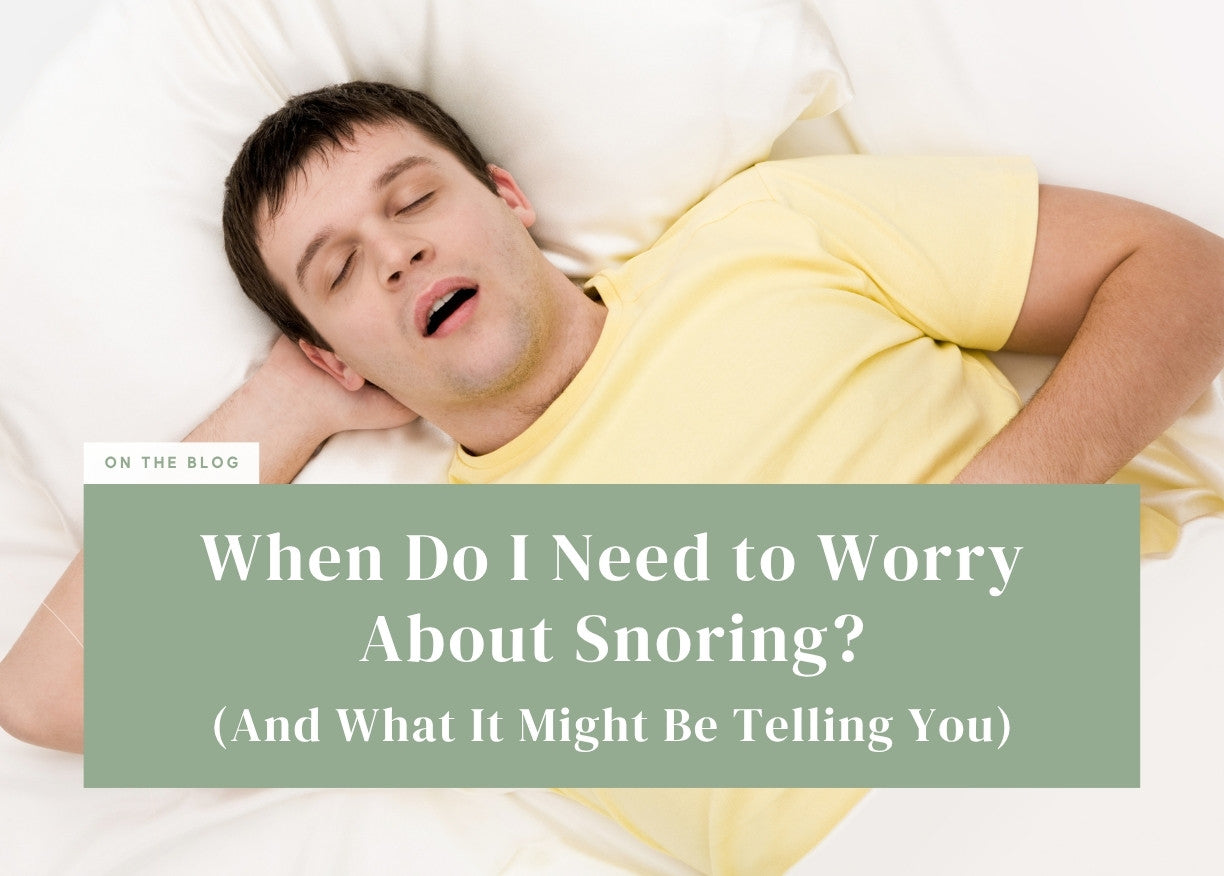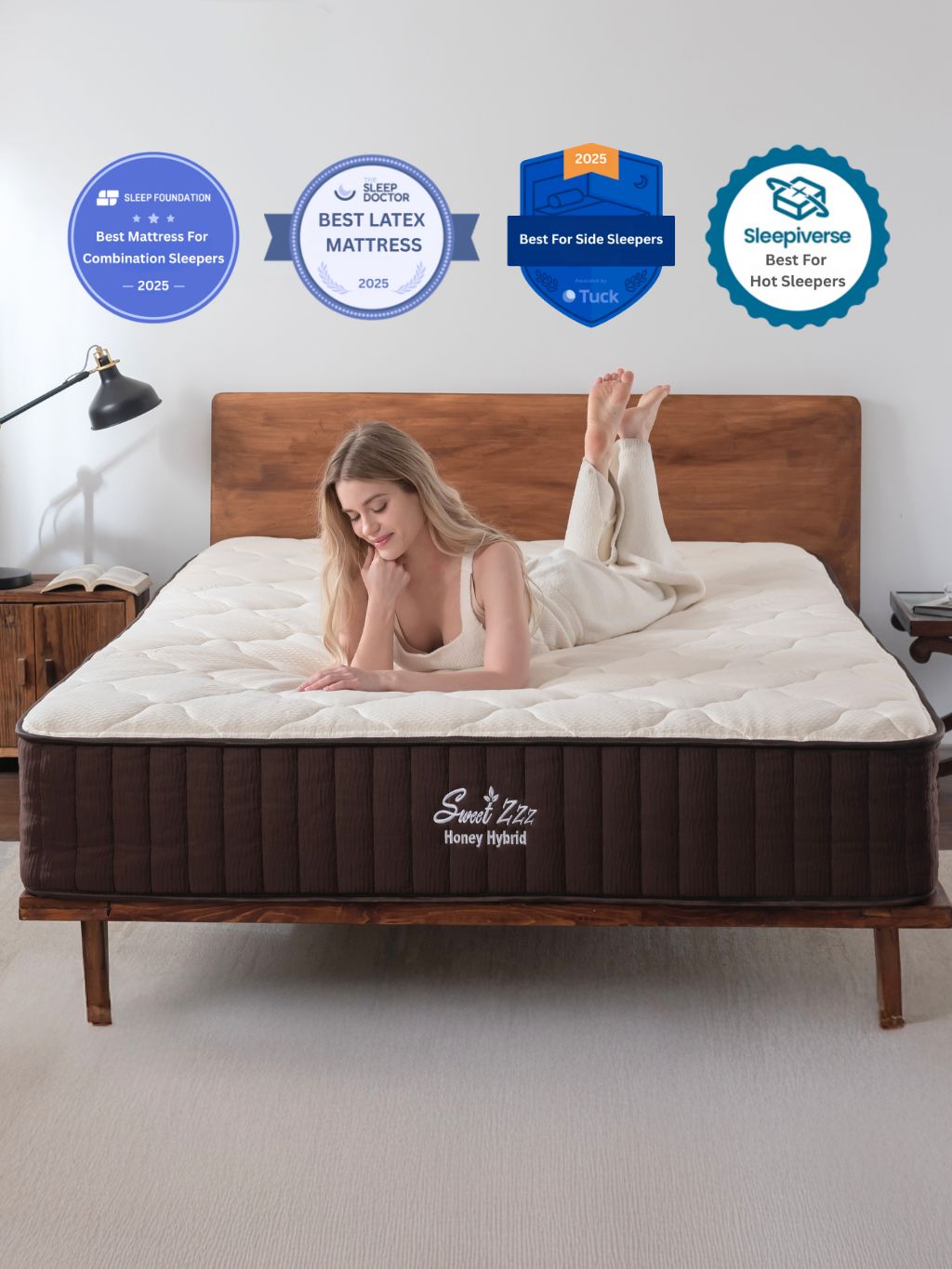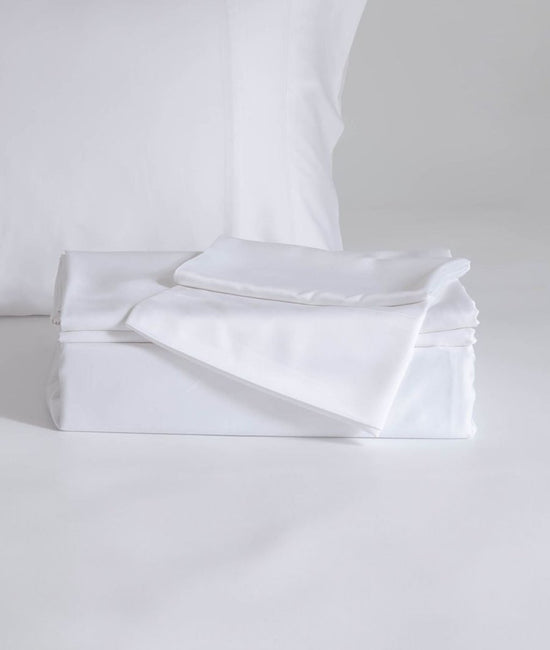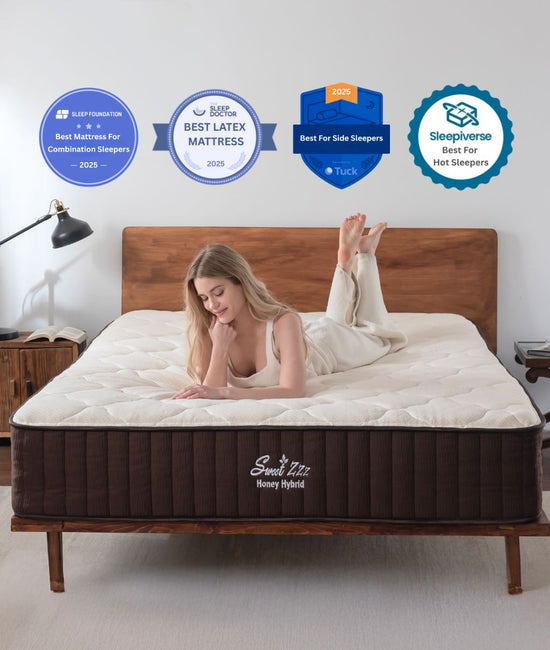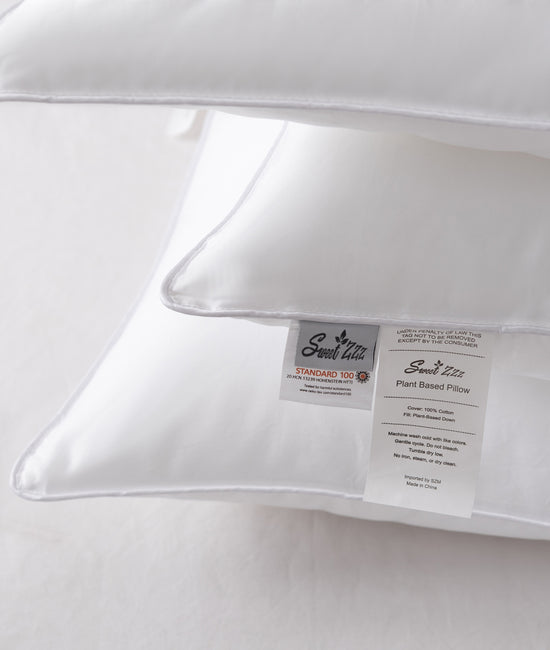When Do I Need to Worry About Snoring? (And What It Might Be Telling You)
Everyone snores once in a while.
A long day, a stuffy nose, a deep sleep—and suddenly you're rattling the walls. No big deal.
But what if it’s every night? What if you wake up tired even after 8 hours? Or your partner keeps nudging you because your snoring sounds… not normal?
That’s when it’s time to stop brushing it off and start asking:
When is snoring just annoying—and when is it a sign of something serious?
What Causes Snoring in the First Place?

Snoring happens when air flows past relaxed tissues in your throat, causing them to vibrate as you breathe.
It’s more likely to happen if:
-
You sleep on your back
-
You’re congested
-
You’ve had alcohol before bed
-
You’re using sedatives
-
You’re sleeping on an unsupportive pillow or mattress that tilts your head or neck
Occasional snoring isn’t usually a problem.
But persistent, loud, or irregular snoring might be a red flag.
When Snoring Is Normal (and Fixable)

✅ Mild, occasional snoring
If you snore only when you're sick, extra tired, or after a couple of drinks, it’s probably nothing serious.
✅ Positional snoring
If your snoring only happens when you sleep on your back, it may be due to your tongue relaxing and blocking part of your airway.
✅ Environmental causes
Dry air, poor neck support, or overheating can all increase the chance of snoring.
Try this:
-
Sleep on your side
-
Use a supportive pillow that keeps your head and neck aligned (like the Sweet Zzz Plant-Based Pillow)
-
Upgrade to breathable bamboo sheets and a pressure-relieving Honey Hybrid Organic Mattress to help your body relax in healthier positions
When Snoring Might Be a Problem

Here’s when you should pay closer attention:
-
Your snoring is loud and constant, even without congestion
-
You gasp, choke, or stop breathing during sleep
-
You wake up tired, no matter how long you slept
-
You feel irritable, foggy, or depressed during the day
-
Your partner notices pauses in your breathing
-
You fall asleep easily during the day (at work, while watching TV, even while driving)
These signs could point to obstructive sleep apnea (OSA)—a condition where your airway repeatedly closes during sleep, reducing oxygen and disrupting rest. It affects an estimated 1 in 5 adults, and many don’t know they have it.
What to Do If You’re Concerned
Don’t self-diagnose—but don’t ignore it either.
If you or your partner notice any of the signs above, talk to your doctor or a sleep specialist. You might need a sleep study to rule out sleep apnea or other disorders.
The good news? Many sleep issues are treatable with small changes:
-
Better sleep posture
-
Weight management
-
Adjusting your environment
-
In some cases, a CPAP machine or oral appliance
Final Thoughts: Snoring Might Just Be Noise—or It Might Be a Wake-Up Call
Not all snoring is serious. But when it’s loud, frequent, or paired with poor sleep, it’s worth looking into.
Because quality sleep isn’t just about how long you’re in bed—it’s about how well your body actually rests once you’re there.
Start with the basics: breathable bedding, proper support, and healthy sleep habits.
At Sweet Zzz, our Honey Hybrid Organic Mattress and plant-based pillow help align your airway and reduce pressure points that may contribute to snoring—so you can breathe (and sleep) easier.


